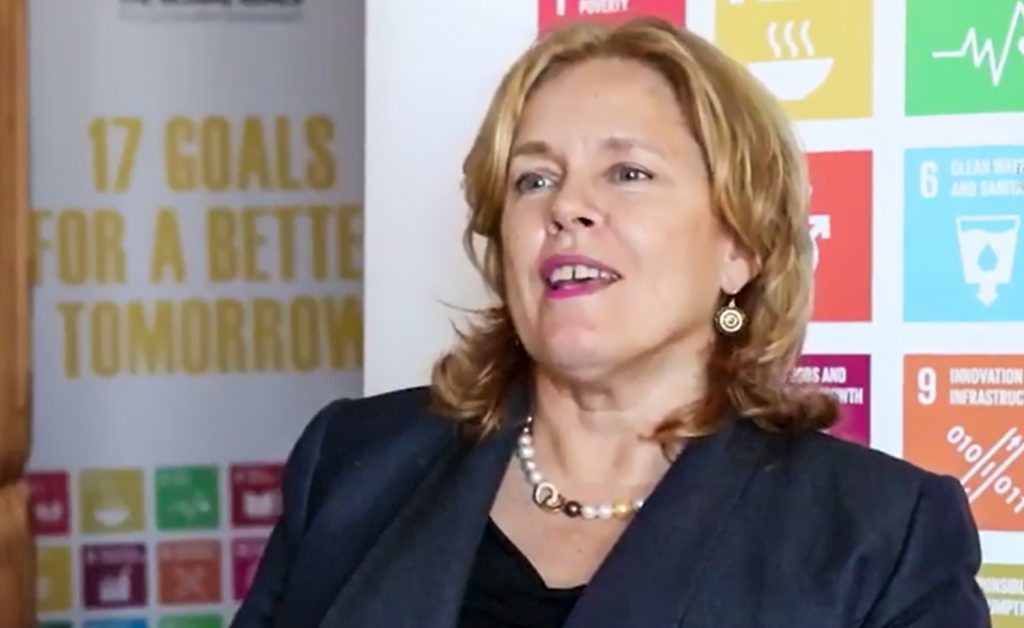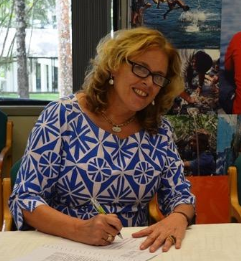
United Nations Secretary-General António Guterres has named SIT Graduate Institute alumna Lizbeth Anne Cullity to serve as a top expert to represent him at meetings with heads of state on critical human-rights issues in the Central African Republic.
In her new role, Cullity will serve as deputy special representative and deputy head of the UN Multidimensional Integrated Stabilization Mission in the Central African Republic. This appointment tops a long list of UN and international posts that Cullity has taken on since graduating from the SIT Graduate Institute in 1990, with an MA in International Administration and a specialization in Human Service Administration.
Cullity has 25 years of leadership experience with the UN in Africa, the Americas and the Pacific. During this time, she has strongly advocated for those less fortunate while working closely with grassroots groups and locals in the field. “It’s really about getting out there and talking to the people and understanding how we can make that investment best through what I believe is expertise of the local context, local language, and rapport-building, to make sure that we have real partnerships,” she said at a regional management meeting of the U.N. Development Programme (UNDP) in Bangkok in 2017.
From 2008-10, Cullity served as the representative of the High Commissioner for Human Rights and chief of the Human Rights section in the UN Stabilization Mission, both in Haiti. From 2011-13, she was chief of Political Affairs for Haiti’s UN Stabilization Mission, and she also was UN resident coordinator and UNDP resident representative in Samoa from 2013-17.
I think that we’ve seen a big shift in the world, a great divide economically between those who have and those who don’t, and that our strategy needs to change to make sure we are able to work with those who don’t have the means to help themselves.
In particular, Cullity has highlighted the need to systemically address the growing global economic divide. “It is my strong belief that investing in civil society and building capacity for ordinary people, for ordinary folks, for ordinary groups, is the path,” she said at the UNDP summit. “I think that we’ve seen a big shift in the world, a great divide economically between those who have and those who don’t, and that our strategy needs to change to make sure we are able to work with those who don’t have the means to help themselves.”
Most recently, Cullity was chief of staff for the U.S. Multidimensional Integrated Stabilization Mission in Mali. She has served in a wide range of leadership roles in Sierra Leone and Haiti, including regional coordinator of the UN/Organization of American States International Civilian Mission to Haiti from 1993 to 2000, and as chief of the human rights, political and electoral pillar of the OAS Special Political Mission to Haiti from 2002-04.
During the UNDP summit, she also underscored the importance of working through public-private partnerships to create job opportunities for youth around the world. “We’re looking for and building partnerships to enable young people and others who don’t have a lot of hope and opportunity to find those opportunities.”
We need to get out there more, get out in the field … inside the villages, inside the small towns, and working with ordinary civil society groups that are trying to make a difference, but don’t necessarily know how.
Cullity is fluent in English, French, and Haitian Creole, and enjoys working from the ground-up, even as her work becomes increasingly global. “We need to get out there more, get out in the field – and by the field I don’t mean inside the country office,” she said at the UNDP summit. “I actually mean inside the villages, inside the small towns, and working with ordinary civil society groups that are trying to make a difference, but don’t necessarily know how.”

